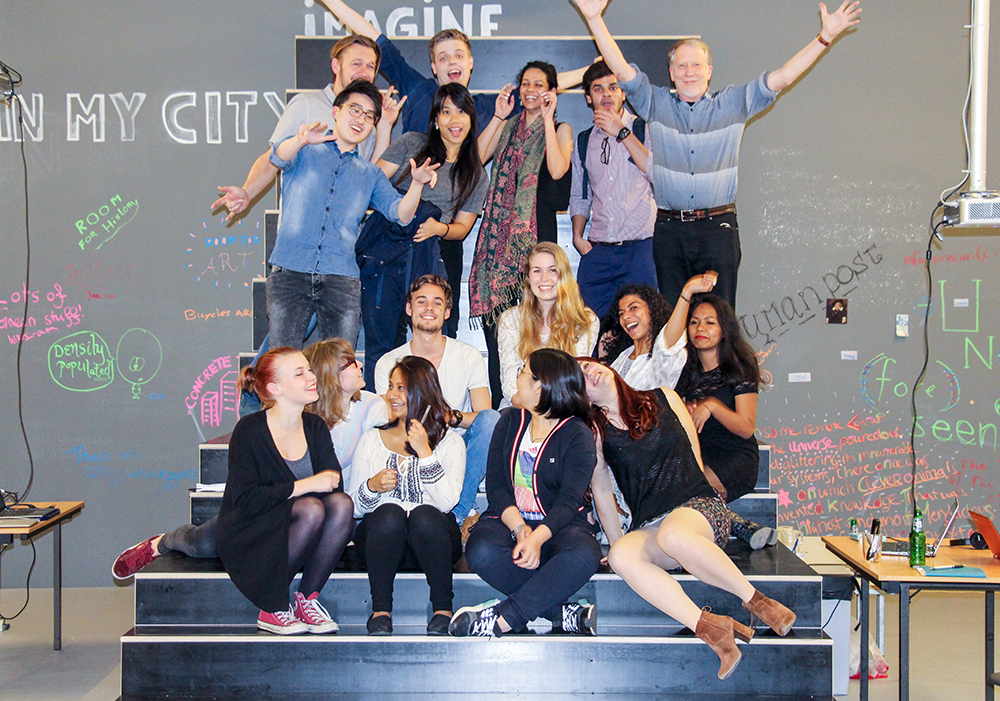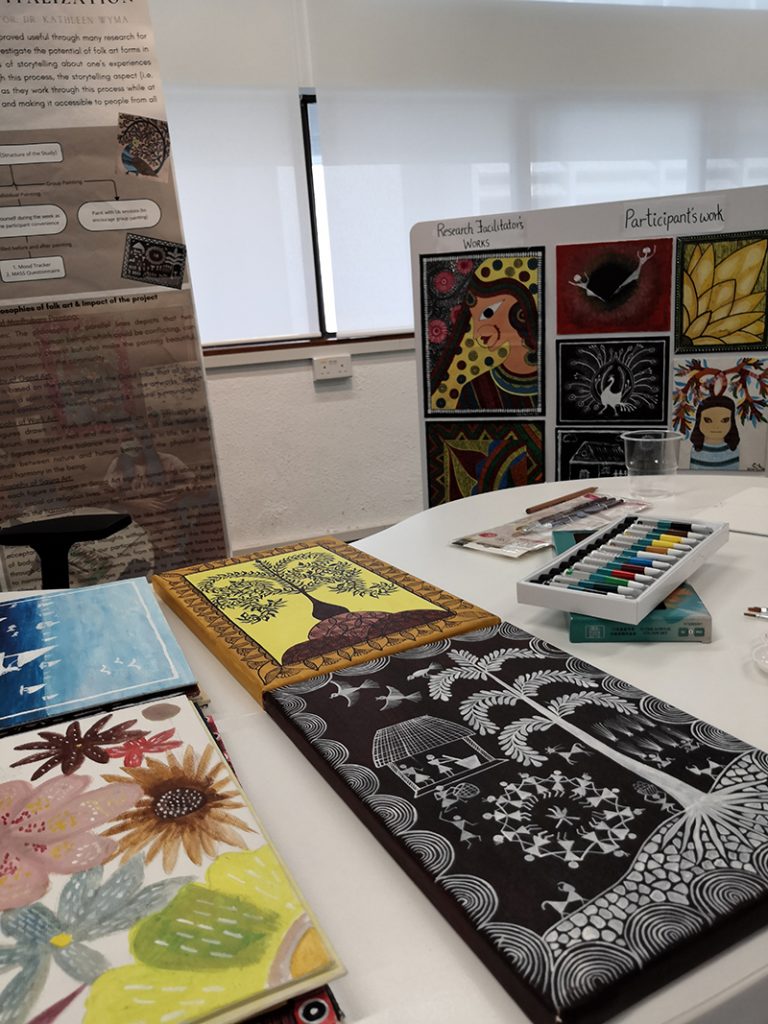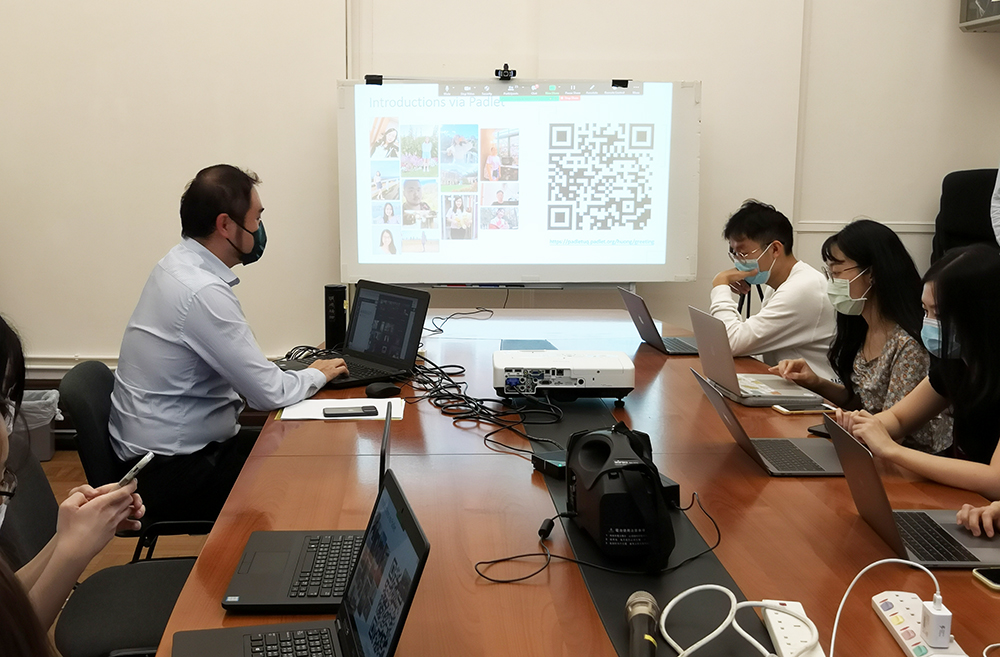May 2022 | Volume 23 No. 2
The Common Core Turns 10!
In 2012, HKU and all universities in Hong Kong switched from three-year to four-year undergraduate programmes. But HKU added an innovative twist with the launch of the Common Core, under which all students must take six courses alongside peers from outside their majors to explore common human experiences from a multidisciplinary perspective. As it enters its second decade, the programme rides a wave of success that includes the University Grants Committee’s Team Teaching Award 2019 and its continued progress in pushing at boundaries near and far.
Since its launch, more than 500 teachers and more than 200,000 student enrolments have participated in the 290+ courses offered under the Common Core. While courses form the bedrock of the experience – with students studying topics as diverse as climate change, identity formation, technology and corruption in society – the contours of the Core have expanded greatly under the directorship of Professor Gray Kochhar-Lindgren, who joined HKU in 2014.
International exchanges and transdisciplinary undergraduate research have been introduced, top companies and NGOs have been recruited as ‘learning partners’ who have spurred new initiatives, overseas institutions have been invited to partner through the Global Liberal Arts Design Experiments (GLADE) initiative, and Common Core minors have been established so students can pursue topics of interest in more depth.
“The courses are central, always, but we’ve also collaborated with others to develop a culture of attraction, curiosity and experimentation and to build connections across every possible scale,” he said. “Student agency and students-as-partners run through everything we do.”

The Global-Action-Lab Exchange with Utrecht University around the concept of More-Than- Human-City has students from HKU and Utrecht University collaborating in-person and virtually, co-creating transdisciplinary research strands, events for public participation, and creative, scholarly, media outputs.
Research and reflection
One of the key aims has been to ensure the Common Core delivers on the University’s teaching aims, particularly interdisciplinarity and international visibility. A recent example was a pilot programme in which 10 HKU students from engineering, biomedicine, social sciences, law and other disciplines collaborated online with students from the University of Queensland to consider well-being from the perspectives of film, art and the resonance of objects, culminating in a joint presentation and plans for expanding the collaboration.
In another recent project, students worked with Arup, a global design and engineering firm, to study night-time lighting design. They were trained to use light-measuring equipment, then went into the community to measure night light in various places, observe how people reacted there, and reflect on their own reactions. Their analysis and recommendations were then presented to the company.
Dr Jack Tsao, Associate Director of the Common Core, has steered the development of these and other student projects. “Our partnerships with businesses have been quite useful because they facilitate the whole process of creating knowledge exchange and very good connections for our students,” he said.
Such projects also illustrate the programme’s ambition of redefining research for undergraduates. “Not surprisingly, when students first come in, most of them think research means only a traditional scientific experiment in a laboratory or a specific methodology tied to their discipline. All that is of course important, but we’re trying to loosen up their imaginations around research,” Professor Kochhar-Lindgren said. A key part of that is getting them to reflect on their own habits. “All of our research facilitators and mentors do all we can to get that reflective moment built into these programmes because otherwise, learning tends to dissipate too quickly. We want to create iterative paths of learning.”

Interdisciplinary projects undertaken by students through the Common Core Transdisciplinary Undergraduate Research Initiative and the Bachelor of Arts and Sciences programme were showcased in the I-Squared: Interdisciplinarity and Impact Student Showcase and Networking Event in 2021.
Giving students agency
An international perspective has also been promoted through adoption of the United Nations’ Sustainable Development Goals (SDGs) to frame courses and initiatives, as well as through the founding of GLADE in 2018.
“Our attitude is that we should put students in a rich learning environment that’s well-structured but not rigid, give them as much agency as possible, have clearly shared learning goals, and offer a venue for the public presentation of their work. The results have been quite amazing,” Professor Kochhar-Lindgren said.
The multiple strands of the Common Core are exemplified in an initiative funded with the UGC teaching award grant, called Critical Zones: Gender, Cities, and Well-Being, which has used student peer mentors, project-based learning and international collaborations to develop activities related to the SDGs of gender equality, sustainable cities and communities, and good health and well-being. The project is nearing completion and has resulted in student transdisciplinary research, deepening engagement with the SDGs, and collaborations on campus, in Hong Kong, and overseas.
Professor Kochhar-Lindgren attributes the success of the Common Core to its original design in 2012, a strong commitment from the University’s Senior Management Team and extraordinary efforts by administrative staff and teachers and tutors who have experimented with innovative teaching styles and assessments. Most importantly, HKU students have been deeply engaged in Common Core courses, consultations, sharing, and projects, he said.
Looking ahead, he sees the Common Core focussing on helping students develop ‘future readiness’ and further expanding its capacities in interdisciplinarity, internationalisation and hybrid forms of learning. It will also continue serving as a sandbox for the University in finding new ways to engage, experiment and enjoy teaching, learning and research.

HKU students from different disciplines collaborating online with students from the University of Queensland via a virtual exchange programme.
The courses are central, always, but we’ve also collaborated with others to develop a culture of attraction, curiosity and experimentation and to build connections across every possible scale.

PROFESSOR GRAY KOCHHAR-LINDGREN

